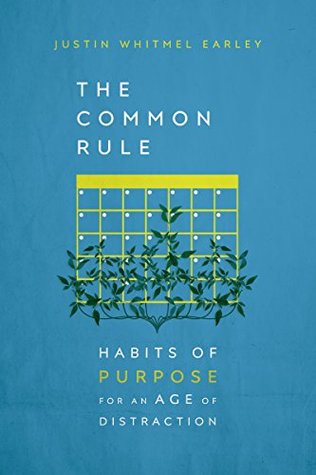More on this book
Community
Kindle Notes & Highlights
Read between
May 18 - May 23, 2019
One of the baseline practices here is to watch most, if not all, media with someone else.
The point here is to figure out what helps you curate the best and to notice that usually we curate worse when we curate in private.
There will always be a kind of pain that you can’t soothe by eating.
There was food in the world before there was emptiness in the world, and that’s an important fact.
We were made to feast. Not in order to become full, but because we are full. We are to celebrate that fullness by feasting. Feasting to fill the emptiness is not feasting; it is coping.
the fall changed everything, of course, eating included. And the best way to understand the fall is to say that we take the good things God has given us and make them god instead.
When Adam and Eve ate the fruit, they inverted God’s gift. They ate to become God ins...
This highlight has been truncated due to consecutive passage length restrictions.
In a world of suffering and death, one of our greatest temptations is to rehearse the fall again and again through food. We eat to try to fill our emptiness.
The point of fasting is not the technicalities of it. The point is leaning into the lack, and this can be done in many, many ways, all of which are radical acts, especially in America.
fasting is bizarrely countercultural because it runs the opposite direction of the American dream.
that’s the first point of the practice of fasting: seeing who you really are.
When I fast I see that deep down I’m not actually a very patient person after all. I’m not actually a very content person after all. I’m not as independent and strong as I thought I was. I’m a weak, impatient, angry person who medicates with food and drink.
The fact is that there is a particular sort of “it doesn’t have to be this way” suffering that goes on in dehumanizing material poverty. It’s the way it is because we have made it that way.
while there is a part of fasting that reveals our own need, there is a part that reveals the world’s need too.
Fasting is a way to quiet the noise of the world and listen for the “rumble of panic underneath everything,” as anthropologist Ernest Becker put it.3
Fasting, as a practice, is a way to enter into Jesus’ life. He was a homeless, hungry minority. He was a refugee and an outcast. He was actually—not just metaphorically—poor. He lived among violence. He died violently. To follow Jesus is not just to believe in his life; it is also to follow him into his lifestyle. And that idea runs hard against my usual expectations of being American. It’s hard to be poor in a land of plenty, and it’s hard to be hungry in a land of sugar. It’s hard to be empathetic in a land where we hide the poor on the other side of the interstate. It’s hard. It’s all just
...more
Focusing and finishing are the two great glories of work.
The weekly habit of sabbath is to remind us that God is God and we are not.
this, of course, is what we in our restless culture are after: an abiding sense that someone thinks we’re important.
This is why we live in a culture that can’t accept sabbath; we do not believe that work is from God and for our neighbor.
This is what we’re doing when we prove our busyness to ourselves and each other; we’re trying to show that we matter, that the world wants us, that the world depends on us.
I began sabbathing out of necessity; my health depended on it. Now I sabbath as a way to understand my salvation; my soul depends on it.
When I stop working, I have to admit that the world doesn’t depend on me.
Many, many people believe that being a Christian means trying to be a good person. The idea is that God supposedly likes “good” people. No one is perfect, but God at least forgives those who try hard enough. This is not true! Don’t believe a word of it. Even worse, it is the most burdensome lie ever told.
Here’s the truth: we are messed up beyond belief, but loved beyond belief, and that is the one thing worthy of our belief.
Place habits before love, and you will be full of legalism, but place love before habits, and you will be full of the gospel.
God’s love for us really can change the way we live, but the way we live will never change God’s love for us.
failure is not the enemy of formation; it is the liturgy of formation.
The connection between the ordinary and the extraordinary is through very small habits. Small things build up to great works of art.
“What did I know? What did I know / of love’s austere and lonely offices?”
Look at me or at any other human being long enough, and you’ll see nothing but a hypocrite. This will be true of every human being ever, no exceptions.
But if you stand next to me and look where I’m looking, then we’ll both see Jesus. He’s the life we want. He’s the life given for us.


